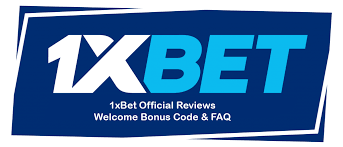
Sportsbook betting has grown into a global industry that combines data, psychology, and technology to create rich opportunities for both casual punters and professional bettors. If you want to take advantage of the convenience offered by modern platforms, consider easy ways to start with the tools available — sportsbook betting download 1xbet — then focus on learning markets and money management before increasing stakes.
At its core, sportsbook betting is about finding value. Bookmakers offer odds that reflect both statistical expectation and market sentiment. Your job as a bettor is to compare those odds to your own assessment of a likely outcome and to identify where the bookmaker’s price misrepresents the true probability. Value can be fleeting, which is why disciplined preparation and quick execution matter.
Understanding different types of markets is essential. The most common are moneyline (win/lose/draw), point spreads, and totals (over/under). Each market has unique risk characteristics. Moneyline bets are straightforward but can offer poor returns on heavy favorites. Spread betting balances mismatches by offering a margin, while totals focus on combined scoring rather than the final winner — useful when you have a read on pace or tempo rather than team strengths.
Odds formats vary by region — decimal, fractional, and American — but they all express the same information. Learn to convert odds to implied probability: for decimal odds, divide 1 by the odds (1/odds). Subtract the bookmaker’s margin to estimate whether a price may be advantageous. Odds feeds and comparison tools speed this process and help spot discrepancies across sportsbooks.
Bankroll management is the foundation of long-term success. Decide on a dedicated bankroll — money you can afford to lose — and use a staking plan to protect it. Flat stakes are simple: wager the same amount on each bet. Percentage staking (e.g., 1–3% of your bankroll) adapts to variance and prevents ruin. Avoid chasing losses, doubling down impulsively, or staking a large share of your funds on a single event.

Research beats intuition. Use statistical models, team news, injury reports, matchup history, and situational factors such as travel and rest. For sports with rich datasets (football, basketball, baseball), model-based approaches using expected goals, player efficiency ratings, or advanced metrics can reveal insights missed by casual observers. For less data-rich sports, qualitative analysis and local knowledge can provide an edge.
Line shopping is a simple but often overlooked advantage. Different sportsbooks price events slightly differently. Having accounts at multiple reputable sites lets you take the best available price and maximize long-term returns. Margins are small per bet, but they compound over hundreds or thousands of wagers.
Live, or in-play, betting opens new strategic possibilities. The dynamics of a live game allow you to react to momentum shifts, injury forced substitutions, or weather changes that alter expected outcomes. Successful live bettors pay close attention to game flow and tempo. However, live odds move quickly, so automated alerts or fast interfaces are helpful. Maintain discipline: live betting can amplify impulsive behavior if you don’t stick to a plan.
Promotions and value-added tools offered by sportsbooks can improve your edge when used thoughtfully. Welcome bonuses, free bets, and boosted odds are attractive but read the terms carefully: rollover requirements and restricted markets can negate perceived benefits. Use promos to test new strategies with reduced risk, but don’t let them dictate your betting choices.
Keep records. A structured betting journal that logs stake, odds, market, rationale, and outcome helps you identify strengths and weaknesses. Analyze your ROI by sport, market, and strategy. Over time, patterns will emerge — some approaches will be profitable, others not. Prune unprofitable strategies and double down on what works.

Psychology plays a surprisingly large role in sportsbook betting. Cognitive biases like recency bias, confirmation bias, and overconfidence can impair judgment. Set clear rules before you bet: maximum stake per day, maximum number of concurrent bets, and criteria for stopping when on tilt. Consider timeouts after big losses to reassess rather than trying to “win back” money immediately.
Responsible gambling is non-negotiable. Even skilled bettors face variance and losing streaks. Only stake funds you can afford to lose, set deposit and loss limits where possible, and seek help if betting interferes with your finances or mental health. Most reputable operators provide tools for self-exclusion, deposit limits, and reality checks — use them.
Technology increasingly shapes sportsbook betting. Machine learning, API feeds, and automation make it easier to process large datasets and react faster to market changes. Yet technology doesn’t replace sound strategy and discipline. Use tools to augment your decision-making: data visualization for spotting trends, odds comparison for line shopping, and alerts for market movement. Avoid overreliance on black-box systems without understanding their assumptions and limitations.
Legal and regulatory considerations vary by jurisdiction. Ensure you bet with licensed operators and understand the tax implications in your country. Responsible operators are typically regulated, display their licenses, and promote fair play and transparency. Betting with unlicensed providers can expose you to fraud, unfair terms, and difficulties when withdrawing funds.
In summary, sportsbook betting rewards preparation, discipline, and continuous improvement. Focus on value identification, maintain strict bankroll controls, study markets and metrics, and use technology and multiple accounts for better pricing. Keep a clear head, document your activity, and prioritize responsible gambling. Over time, these habits increase your chances of turning an interesting hobby into a sustainable, analytically driven endeavor.
